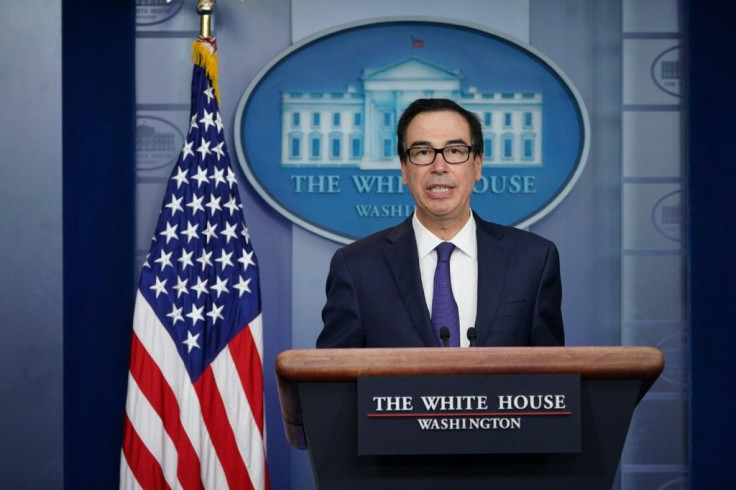China Trade Deal News: Dec. 15 Tariff Hike On Table If No Agreement Signed In November

U.S. Treasury Secretary warned Monday tariffs scheduled to go into effect Dec. 15 on $156 billion in Chinese goods could go ahead if President Trump and Chinese President Xi Jinping fail to sign a phase 1 trade deal when they meet at the Asia-Pacific Economic Cooperation summit in Chile next month.
U.S. and Chinese negotiators reached a preliminary handshake agreement at the end of two days of talks Friday. The deal involves Chinese agreement to buy more agriculture products and the U.S. to hold off on tariffs on $250 billion in Chinese goods that had been scheduled to kick in Tuesday.
The deal did not address the big issues at the heart of the 18-month-old U.S.-China trade war, including industrial subsidies and cybertheft.
Mnuchin said on CNBC if there is no trade deal, the Dec. 15 tariffs will take effect but “I expect we’ll have a deal.”
In announcing the phase 1 agreement Friday, Trump said it would take up to five weeks to put the pact into writing.
Trump said during the weekend he is confident the deal with be finalized and China already had started increasing its purchases.
On Monday, however, China said it wants more negotiations before the end of the month to iron out details.
China’s Ministry of Commerce said the two sides had made “substantial progress” and agreed to work together to resolve the conflict. The official Xinhua news agency said last week’s talks managed not to escalate the trade dispute further but there were still many issues that needed to be resolved.
“The U.S. must concede on its December tariff threat if they want sign a deal during APEC summit, otherwise it would be a humiliating treaty for China,” Huo Jianguo, a former Chinese commerce ministry official who is now vice chairman of the China Society For World Trade Organization Studies, told Bloomberg. “The U.S. has definitely shown some good gestures, but we shouldn’t exclude the possibility of another flip-flop.”
© Copyright IBTimes 2024. All rights reserved.






















